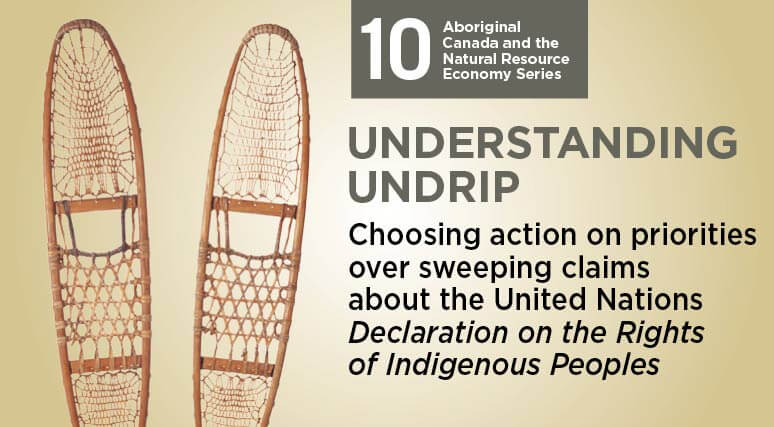 Blaine Favel and Ken Coates, in a newly-released Macdonald-Laurier Institute paper, examine next steps for Ottawa as it follows through on its endorsement of UNDRIP
Blaine Favel and Ken Coates, in a newly-released Macdonald-Laurier Institute paper, examine next steps for Ottawa as it follows through on its endorsement of UNDRIP
OTTAWA, May 19, 2016 – The Government of Canada signaled a sea change in its approach to Aboriginal international law earlier this month with the decision to support the United Nations Declaration on the Rights of Indigenous Peoples (UNDRIP).
But expressing support for the declaration was the easy part. Now the hard work – of deciding what should be the priority versus what would be costly and counter-productive – begins.
In a newly-released Macdonald-Laurier Institute paper, Ken Coates, an MLI Senior Fellow, and Blaine Favel, an influential Plains Cree leader, examine next steps for Ottawa as it follows through on its endorsement of UNDRIP.
“UNDRIP provides Canada with an occasion to and an opportunity to do better”
To read the full paper, titled “Understanding UNDRIP: Choosing action on priorities over sweeping claims about the United Nations Declaration on the Rights of Indigenous Peoples”, click here.
The paper welcomes UNDRIP as an opportunity to do better for Aboriginal Canada. But, Favel and Coates say, prioritizing aspects of the agreement that will provide genuine progress over those that are cost-prohibitive or counterproductive will be key.
“UNDRIP provides Canada with an occasion to and an opportunity to do better”, write Favel and Coates.
The biggest issue, say the authors, will be deciding how to implement the language contained in UNDRIP.
“There is a major distinction between a literal acceptance of the Declaration by codifying the UNDRIP articles and clauses in a single statute or a series of laws, which would be impractical and could undermine real progress, and a political interpretation that uses UNDRIP as a guideline for addressing Indigenous needs and aspirations”, write the authors.
“This paper recommends the latter approach”.
Favel and Coates make several recommendations:
- It is not sufficient for Canadian governments to address the concept of “free, prior, and informed consent”, which presents its own challenges, and claim to have satisfied their commitments to UNDRIP. UNDRIP is much more than that.
- Policy-makers and Indigenous leaders must discuss and clarify the interaction of specific UNDRIP articles with existing Canadian laws and policies.
- UNDRIP provides no direction as to the amount of funding required to address the articulated rights. A starting point – and it is a major one – would be for the Government of Canada to commit to providing equality for Indigenous peoples in the provision of services and infrastructure.
- It would help substantially if Indigenous leaders would indicate those areas in UNDRIP where they believe current Canadian practices are, in terms of international minimum standards, at or above the expectations articulated in the Declaration.
- The government must ensure that it properly communicates UNDRIP and its purpose to nonIndigenous Canadians. It is certainly time for a bigger vision and agenda, like that articulated in UNDRIP, to create the conditions for greater economic and social opportunities for Indigenous peoples.
This paper is a companion piece to a previously-released publication by Favel and Coates that looks at Free, Prior and Informed Consent – another component of UNDRIP that has particular implications for the resource industry.
***
Ken Coates is a Senior Fellow with the Macdonald-Laurier Institute and Canada Research Chair in Regional Innovation at the Johnson-Shoyama Graduate School of Public Policy at the University of Saskatchewan.
Blaine Favel is Chancellor of the University of Saskatchewan. An influential Plains Cree leader, he is former Grand Chief of the Federation of Saskatchewan Indian Nations and he has served as Canadian Counsellor on International Indigenous Issues.
The Macdonald-Laurier Institute is the only non-partisan, independent national public policy think tank in Ottawa focusing on the full range of issues that fall under the jurisdiction of the federal government.
For more information, please contact Mark Brownlee, communications manager, at 613-482-8327 x105 or email at mark.brownlee@macdonaldlaurier.ca.




